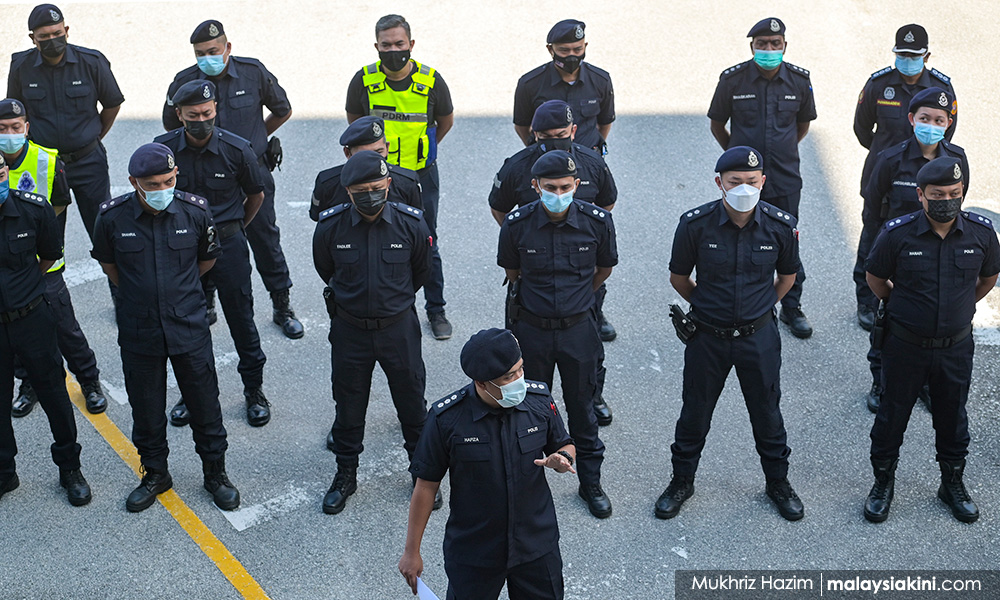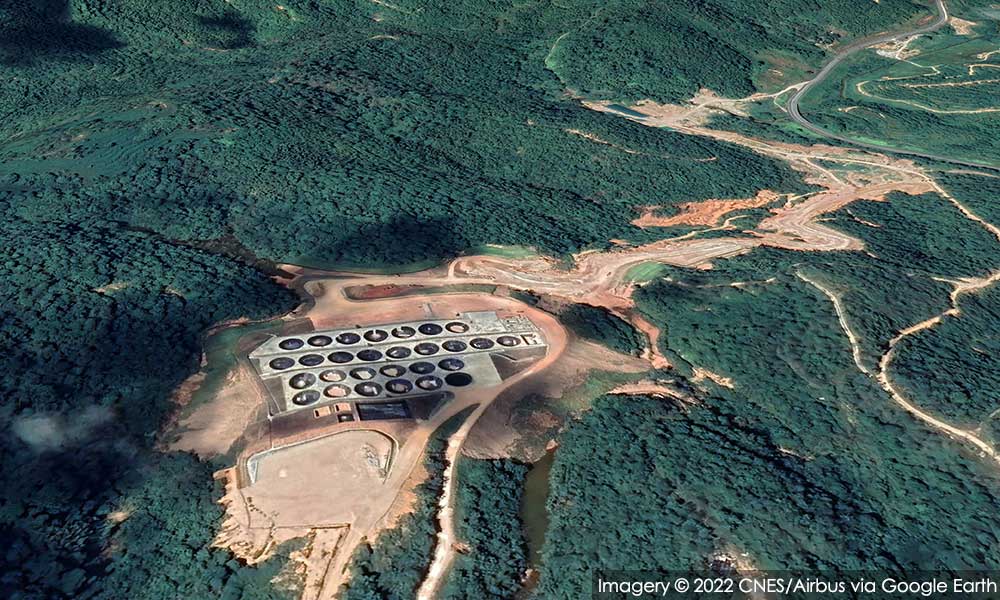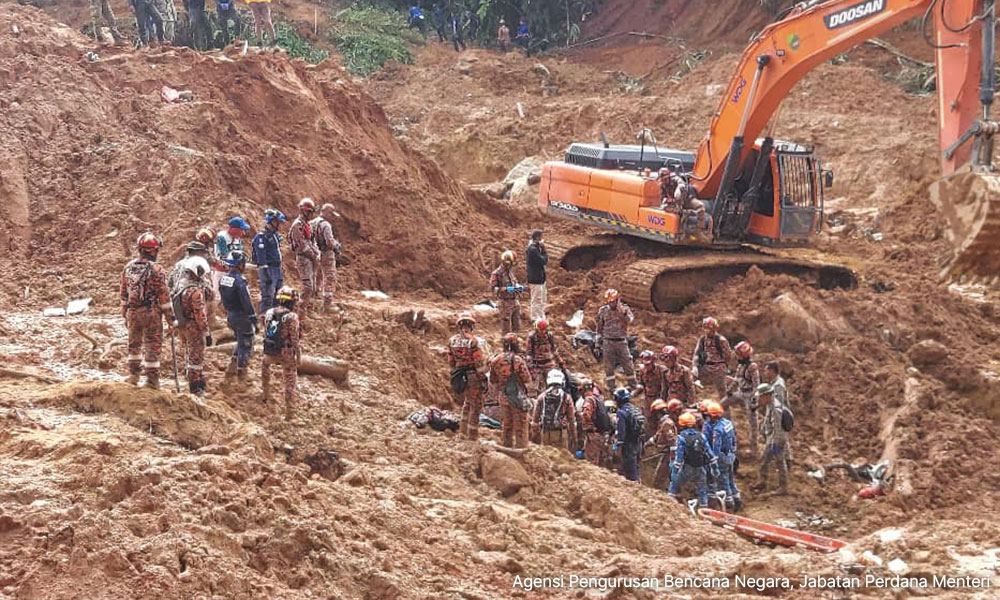EXCLUSIVE | Malaysia was one of the earliest countries to adopt Environmental Impact Assessment (EIA) practices back in 1974 to evaluate the sustainability and long-term viability of a proposed project or development.
Now, four decades after its implementation, the Department of Environment (DOE) is in the process of reviewing EIA implementation in Malaysia.
Natural Resources, Environment and Climate Change Minister Nik Nazmi Nik Ahmad believes that while EIA regulation back then was “sophisticated for its time”, but it was time to assess the current situation and issues related to its implementation.
“The world has moved on. How do we make the Act relevant to our needs today?
“That's something that we really have to put a lot of effort into so that there are not a lot of loopholes,” he said during an interview with Malaysiakini on Wednesday.
Due to loopholes surrounding its regulation, EIAs in practice, may be seen as a symbolic token decoupled from realities on the ground.
One highly raised loophole is developers avoiding public disclosure of EIA reports on their projects by dividing a major project into medium-sized projects.
“We are looking into EIA (implementation) as a whole. There's also the issue of what gets published and what doesn't get published under Schedule 1 and Schedule 2,” said Nik Nazmi.
For instance, according to the Environmental Qualities (Prescribed Activities) (Environmental Impact Assessment) Order 2015, forest conversion projects that cover areas less than 100ha (approximately 247 acres) are not required to submit an EIA report.
Schedule 1, or medium-sized projects that cover areas between 100 to 500ha (approximately 1,235 acres) require developers to submit an EIA report but do not need to publicise and get public feedback.
Large-scale forest conversion projects which cover areas of more than 500ha would be listed as Schedule 2, where developers are required to submit and publicise EIA reports to gather public feedback.
However, the DOE director-general has the authority to instruct EIA reports under Schedule 1 to be displayed for public disclosure on the basis of public interest or high environmental impact.
Not as easy
Among the other challenges faced by the ministry is the impartiality of EIA consultants conducting the reports.
While Nik Nazmi has raised the possibility of granting DOE the authority to appoint its own EIA consultants in the past, he said the ministry's biggest challenge is implementing it on a large scale.
Currently, EIA consultants are chosen and funded by project proponents, which raises credibility concerns due to the vested interests of the parties.
“For instance, Petaling Jaya City Council selects who gets to become a consultant from money in a pool. So there’s a wall between the project proponent and the consultants to avoid consultant shopping.
“But to do that on a national scale, that is something that requires beefing up the DOE.
“If that is possible, and is practicable, you know, I think you know, I'm the first to support it. But I don't want to announce that we’re committing to something and we are not able to do it,” he said.

Nik Nazmi added that the ministry is also looking into stiffer penalties for offences in EIA implementation.
Currently, the implementation of EIA is enforced by the federal government under the Environmental Quality Act 1974, particularly Section 34A.
Below are excerpts from the interview, edited for brevity:
RM47 million was allocated in Budget 2024 to extend the runway and improve facilities at the existing airport in Pulau Tioman. Will the runway be extended inland or to the sea?
First of all, we have not received any EIA documents on the matter. The current airstrip that's there in Tioman (airport) is not even big enough for a Firefly route. Our civil aviation authorities do not recommend it as you would have to make sharp turns, and the risk is too high.
So, that's why we're looking into this proposal. This is merely to allow for ATR planes, for Firefly or Malindo planes from Subang (airport) to be able to land.
When the EIA proposal comes to us, then we will consider it and look at it in detail. Just as we found that the reclamation proposal was not tenable, the government decided not to proceed with it. I think that is something that is very much possible (to reject).
Who is making the proposal for the runway extension of the Tioman airport?
I don't know, I’m not (with) the Transport Ministry. They will (be the ones to) go through that process. When it reaches our hands in terms of the EIA approval, then we will look at it there, that is our role as NRECC.
There have been recent calls for a federal regulation or national agency to handle rare earth elements. Do you think that is something the ministry will look into?
These are state matters. And I always like to say, unlike in Australia or the US, our state governments do not control schools nor have their own police force. So whatever they have, which is land, they will guard it to the hilt.
With all due respect to them, there are (only) a few things that they have - land, forest, water. We also realised that when Petronas happened, it was a very different political reality back then compared to today.

Yes, there's the licensing to mine (rare earth) to get the ore and a lot of it has to do with state licensing and state approvals. However, the export licenses come under Miti (Investment, Trade and Industry Ministry) which comes under the federal government.
So that's where we regulate. We have standard operating procedures and put them as part of our National Mineral Policy. This is a fine balance and I understand people's concerns. We are trying to mitigate the risk as much as possible.
When I met the prime minister recently, he expressed the issue of enforcement and that it has to be really tough. We don't want to have good policies but bad enforcement. Federal bodies are trying to regulate these matters, but the fundamental power still lies with the state.
I think at the end of the day, we need to beef up the police to be able to deal with these things (enforcement) because if they are empowered, they know how to overcome the theft and non-compliance with the environmental policies of rare earth mining.
Would you agree there are extreme power tensions between the federal agencies and the state governments in regard to rare earth elements (REE) export and mining?
I wouldn't put it as “extreme”, it has always been an issue when it comes to state and federal matters. I think, again, people hear these huge amounts being bandied about for REE and they get excited.
But it's not that straightforward because doing it sustainably is going to be expensive. That puts a lot of conditions and makes it a bit more difficult. The money won't be falling straight from the sky as they think it will.
We try to maintain a positive discussion with the state governments. I think we are respectful because these are state matters. Can every state have their own code and all that? No. There has to be a federal one because it takes money, effort and expertise.
Apart from engaging with state governments, are there any other resolutions to ease the tensions?
The national mineral policy is at 80 to 90 percent completion. We have to wait for the National Mineral Council (approval) before bringing it to cabinet.
We've completed a pilot in Perak. We are also in touch with processes of rare earth because the idea is that we cannot export raw rare earth so some processing has to be done in Malaysia.
We don't want the exporting of rare materials. We really have to approach it on a holistic basis.

The forensic report on the Batang Kali landslide received criticism, with calls for a more thorough investigation. What is your response to this?
Well, I have to recheck the entire thing. We (the ministry) gave feedback through Jupem (Department of Survey and Mapping) as well as the Department of Mineral and Geoscience, which was submitted to the Public Works Ministry as they were the coordinating body. The final report was collated and prepared by them.
From what I saw at the level with my departments, they did a very thorough investigation into it. I have to check whether there were any problems with our reports that fall under my ministry.

Will you consider calling for a more thorough investigation?
I have to check the complaints and compare them with our reports and see how. I will definitely get the department heads to explain.
It is unfair for me to say anything without hearing from them. If it’s (reasonable) - whatever is being raised by the families - (then) we can see how far we can assist. - Mkini




No comments:
Post a Comment
Note: Only a member of this blog may post a comment.